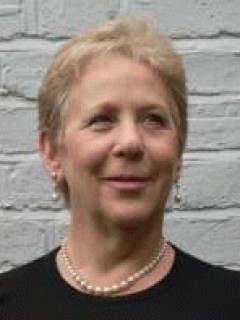Who knew that a term like "accessibility" could have so many meanings or generate so much confusion? In writing this article I encountered those who thought I was talking about a building restoration project, and others who conflated accessibility with inclusivity.
In my mind, after a series of interviews, accessibility became a matter of eliminating barriers to products, services, careers and good health provision which so many of us take for granted. Sometimes those barriers come about due to lack of knowledge, sometimes due to geodemographics, sometimes…well, the list is endless.
Take my closest friend Verity, who has a son, Jack, who is a year older than mine. Jack has Downs Syndrome, but he has never let it hold him back. He is the ultimate lovey, with a passion for musicals, and lives in sheltered housing provided by L'Arche. This is a worldwide federation of people, with and without learning disabilities, who work together for a world where all belong: a tough aim now more than ever.
Verity says that one of the biggest challenges Jack has faced is not having the opportunity to forge a career, although there are things in some jobs that he would be able to do. "That is the most frustrating aspect, and attitudes to jobs are very patchy," she says. "I know of one chap who's Jack's age, who is autistic, and works as a volunteer at a library.
"When he first started it was very challenging, and he was throwing all the books around. But they had infinite patience and he is now a valuable member of the team. They moved premises and it took a while to shift the books but, as soon as they had got organised, they were back on the phone saying: when can you start again? It is possible to find people who will make that effort, but it takes a lot of doing."
"Patchy" comes up a lot when talking about accessibility, as some of the other articles will infer. Attitudes of local authorities to accessibility issues for those in full-time education can vary according to postcode, while those who manage to find employment may find their bosses unsympathetic or blind to their needs.
For example, although there has been a huge shift in how people view mental health and wellbeing, there is still a stigma attached to it, particularly in the workplace where people fear their employers will judge them for how they feel.
"Men, in particular, find it most difficult to share and communicate their mental health needs and concerns," says Emma Fernandes, managing director of PUSH Mind and Body. ONS figures demonstrate that suicide is still the biggest killer of men under 45, with men making up 76% of all suicides in the UK. PUSH collaborates with organisations to work out the best way to help them and individual staff members thrive.
"In addition, there are some sectors which still believe that mental health and wellbeing are not related, nor should they be addressed in the workplace. This has a huge impact on individuals and their right to access support. We need to ensure there are effective programmes that are co-developed in partnership with the employer."
"They need to educate the individual as well as upskill them so that they can have access to the tools and techniques required to manage their own mental health and wellbeing. Improving accessibility to education and learning within the workplace will support the ongoing breakdown around the stigma and taboo attached to this at work."
I spoke with Richard Keagan-Bull, a research assistant with learning difficulties at Kingston University and St George's, University of London. Richard, 50, has been named one of the top 100 most influential disabled people in the United Kingdom in the Shaw Trust's prestigious Disability Power 100 rankings.
For 17 years he worked at a café in a special needs college in Shropshire, but then in 2019 he took part in a pioneering programme launched by Kingston University and St George's to help people with learning disabilities become researchers. The eight-week pilot course was developed by leading learning disability and palliative care expert Professor Irene Tuffrey-Wijne from the Faculty of Health, Social Care and Education. Post-course he saw a job ad posted by the tutor, applied and got it.
He is now a member of Professor Tuffrey-Wijne's team and currently working with her on a project helping the NHS to tackle health inequalities for people with learning disabilities and autism. He is also involved in an NIHR-funded study focused on supporting older people with learning disabilities and their families to plan ahead for the future.
He enjoys both projects and comes into the university twice a week to support the professor and her team, enabling them to bounce ideas off him. He lives independently, with members of L'Arche coming in twice a week to provide any back up needed.
His story makes me wonder how much the research community seeks input from those experiencing accessibility and inclusivity problems, and how much more could be done. Sometimes, those coming up against barriers don't even regard them as such at the time.
Alice Fenyoe, founder of Curiouser, took part in a study to find a message that would shift the public's attitudes in favour of tackling child poverty in Britain and raising benefits. One of the groups identified as possibly willing to change their attitudes towards poverty were the "Precarious Pessimists".
Alice recalls talking to women in this group during the pandemic who hail from 'red wall' constituencies, often leaving school at 16. Many had never considered the barriers created by ending their education early, particularly in contrast to boys. In such instances, can research make a difference, even if it's just to ensure that history is not repeated? I do hope so.


